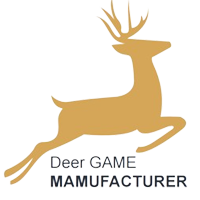Developing Skills Through Board Games
Despite the millions of apps and video games that invade our everyday lives, board games (also known as tabletop games) are making a comeback to the family table. If what comes to mind when you hear the phrase family board games is Monopoly or Scrabble, then think again, there are now a myriad of themes with enticing illustrations and complex mechanics to spice up your tabletop gaming experience. This new generation of the game offers parents opportunities to bond with their children and reclaim time away from screens whilst building key 21st-century thinking skills in an entertaining way.
About the author: Andrea Anguera is the Potential Plus UK Senior Assessor and holds an MSc in the Psychology of Education and Child Development. She is the mother of two children with high learning potential.
Editor's note: This article is adapted from potentialplusuk.org
One-Stop Solution
Board games offer multiple ways to develop a number of thinking skills. For example, problem solving, logical thinking and decision making are developed through:
· planning within a restrictive amount of choice
· management and prioritising of limited resources
· thinking ahead of the current turn
· predicting what others may do
· evaluating the advantages and disadvantages of different moves
· staying ahead while remembering and adhering to the rules of the game
· flexibility in playing the same game differently each time.
 Lower Your Inventory Risk
Lower Your Inventory Risk
Another important benefit derived from playing board games is the unique opportunity that they offer to process sets of information simultaneously. This creates regular practice in working memory and information processing.
These cognitive skills have been shown to play a crucial role in academic performance as well as in the everyday life of all adults.
They involve being able to remember key facts about the issue at hand, while mentally comparing and contrasting options or propositions, then organising or prioritising these key facts to produce a response, which may be verbal or by means of a chosen behaviour or action.
The more variables the child can manipulate at once, the higher the probability that they will choose an optimal resolution.
 Guarantee Our Quality
Guarantee Our Quality
Other skills can also be developed through board games; for example, some games train social skills like theory of mind, as players learn to predict how others will react or have to consider another player’s interpretation of a given picture (e.g. Dixit, Mysterium or Codenames).
In other games, the whole family play as a team, developing team-working skills, effective communication and collaborative problem solving, as players present and discuss their ideas for best movement for the whole team (e.g. Forbidden Desert, Subterra, or Pandemic).
Yet other games are highly creative, they require players to imagine unique scenarios, characters or weapons and develop flexibility, as each game requires a novel way of thinking and making points (e.g. Dungeons & Dragons, D&D; or Mice and Mystics).
 Make It Easy For You
Make It Easy For You
Card Games Often Have Easier Instructions To Follow And Can Be Used To Play When Short Of Time, Going On Holiday (They Are Small And Easy To Pack) Or When You Want To Start Introducing These Skills For The Very First Time.
Some Games Include: Hanabi (A Cooperative Game Where You Can See Everyone’s Cards But Yours!); For Sale (Get Into Real Estate By Bidding For Buildings To Later Sell At The Best Profit); Splendor (Become A Renaissance Merchant And Collect Gems To Buy Mines, Factories And Shops, If You Get Rich Enough, A Noble Visitor Will Bring Extra Points); Love Letter (A Game Of Deduction Where You Have To Secretly Deliver Your Letter To The Princess While Deflecting Those Of Others);
Bohnanza (Earn Money By Planting Fields Of Sets Of Beans And Harvesting Them. You Will Need To Trade And Make Deals With Your Opponents To Win The Game, As You Can’t Rearrange Your Hand Of Cards And You Only Have A Few Fields); And Century: Spice Road (Players Are Caravan Leaders Who Travel The Silk Road To Deliver Spices To The Far Reaches Of The Continent For Fame And Glory).
 Always Behind Your Back
Always Behind Your Back
Some games are highly thematic and immerse you in a theme of choice.
These include Wingspan (create a beautifully illustrated bird wildlife reserve);
Viticulture (wine making at its best); Photosynthesis (plant trees in the best spots to collect sunshine and create shadows to slow down your opponents); Takenoko (tend a bamboo garden for the royal panda by cultivating and irrigating a colourful garden);
Sherlock Holmes Consulting Detective (no board, this time a Victorian London map, newspaper cuttings, and interviews with suspects will have to be enough for you to solve the crime); and Harry Potter: Hogwarts Battle (a cooperative game set on JK Rowling’s wizardry world).
 Lower Prices As You Grow
Lower Prices As You Grow
Board games can also be used with a subject-centred approach to increase your child’s ability and knowledge of numeracy (e.g. Times Square, Prime Climb);
vocabulary (Taboo Kids vs Parents, Scattergories); creative writing (It’s Just a Theory, Snake Oil); science (Cytosis, Evolution); coding (RoboRally, CodingFarmers); and the humanities (Planet, Ticket to Ride, Nippon Rails, Medici, Teotihuacan, The Downfall of Pompeii, History of the World, Wars of the Roses: Lancaster vs. York, Battle of Britain); and art (Bruxelles 1893, Tokaido, Kanagawa, The Gallerist).
Because young people are having fun, they learn faster and are willing to engage in the many repetitions that will allow information to stick. However, testing your child or forcing them to play a game would be counterproductive.
For more games in these areas here are some of our favourite lists about maths, coding, science or history games.



